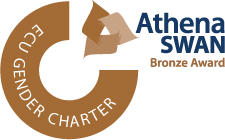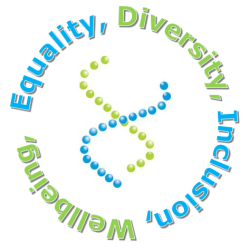The Departmental Wellbeing, Equality, Diversity and Inclusion (WEDI) Committee meets once per time and comprises:
Neha Bhatia, Amanda Gardiner, Lottie Groocock, Vicki Hodgson, Charlotte Houldcroft, Sam Laister (Secretary), Imen Lassadi, Lewis Mason, Casey Mein, Steve Russell (Chair), Henrik Salje, Ben Steventon, John Welch, Lucy Woolhouse.
The Committee welcomes any comments and suggestions on how we can better develop EDI&W within the Department.
The Department of Genetics is committed to providing an environment and culture that actively supports well-being and promotes the equality, diversity, and inclusion of all staff, students and visitors. The WEDI Committee has a responsibility to support this aim; to identify areas for improvement, to understand the unique needs of individuals in the Department and to encourage the inclusion of under-represented groups. The committee values diversity in its membership and welcomes the contribution that any member of the Department may wish to make.
Equality, Diversity and Inclusion is integral to how we manage recruitment and advertise vacancies in the Department. We always strive for gender balance across selection panels and ensure that all staff involved in the selection process have completed essential EDI and Unconscious Bias training. When we advertise roles we encourage applications from underrepresented groups and all candidates are offered reasonable adjustments to the interview process should this be required.
As a Department we have a responsibility for increasing diversity in Genetics and encourage outreach opportunities and work based placements for students from underrepresented and disadvantaged backgrounds. We engage with a broad range of students from across the globe by hosting research visits, work experience placements and Internships; supporting the School of Biological Sciences Experience Postgrad Life Sciences program. We hope that by investing in these opportunities, students from all backgrounds will continue to be fascinated by Genetics in the future.
Promoting Women in Science
- We host a biennial event celebrating the work of Edith Rebecca Saunders
- We actively try to recruit women to senior positions and include a statement in all of our vacancies encouraging women applications
- Celebrating Women's History Month
Race Equality Charter
The Race Equality Charter (REC) is a national scheme that provides a framework for higher education institutions to recognise, investigate and challenge barriers to recruitment, progression and retention of Black, Asian and Minority Ethnic staff and students. The University joined the Advance HE's Race Equality Charter in 2016 and received the REC Bronze award in November 2019.
Athena Swan Charter
Athena SWAN is a Charter to encourage and recognise commitment to gender equality in Higher Education for all staff and students. The University of Cambridge was a founding member of Athena SWAN Charter and the University won its first award in the inaugural round of March 2006. Since then, it has successfully renewed its Bronze award in 2009 and 2012, and in 2014 achieved a Silver Athena SWAN award with renewal under the new criteria in 2018.
A number of Departments within the University hold individual awards including the Department of Genetics (awarded Athena Swan Bronze status in 2018). The Department is currently in the process of supporting a school-wide application across the Biological Sciences and continues to follow the Athena Swan Principles.
Staff Networks
In order to support EDI at Cambridge, the University has a number of staff networks helping to support staff from underrepresented groups, as well as offering advice and guidance to Departments and the wider University e.g. on policy development. These are:
Dignity @ Work
There is no place for any form of discrimination, harassment, victimisation or sexual misconduct at Cambridge. Such behaviour is contrary to the values and ideals of our shared community, subverts the University’s mission and core values and diminishes the dignity and integrity of all parties. We ask all members of staff to read the Dignity @ Work policy as part of their induction.
The University expects all members of the University community to treat each other with respect, courtesy and consideration at all times; to behave professionally and have the right to expect professional behaviour from others. All members of the University community have a personal responsibility for complying with the Dignity @ Work Policy and Procedure and demonstrate active commitment to it.


